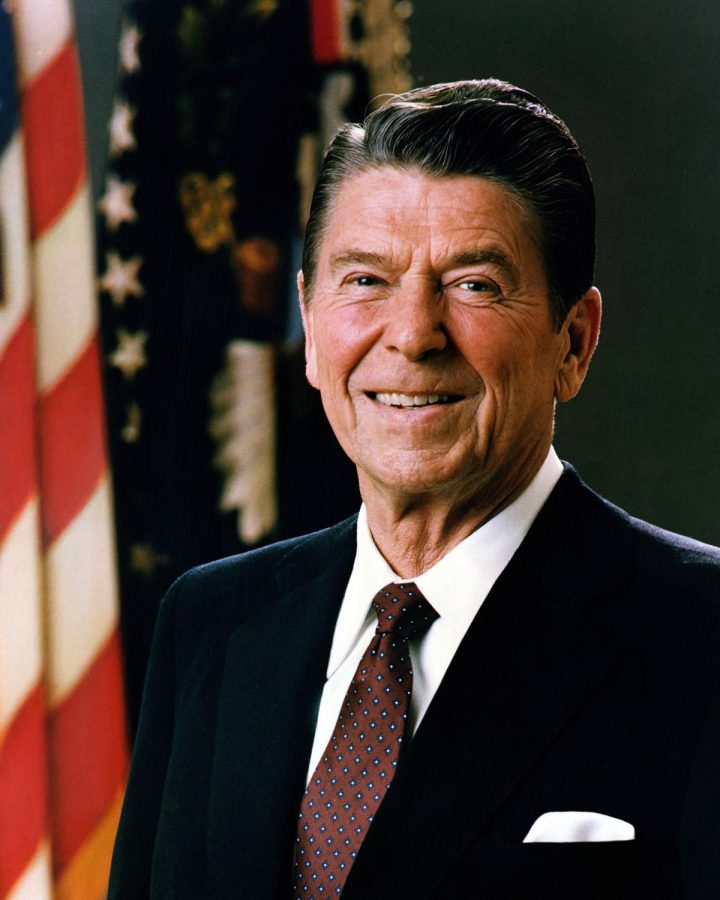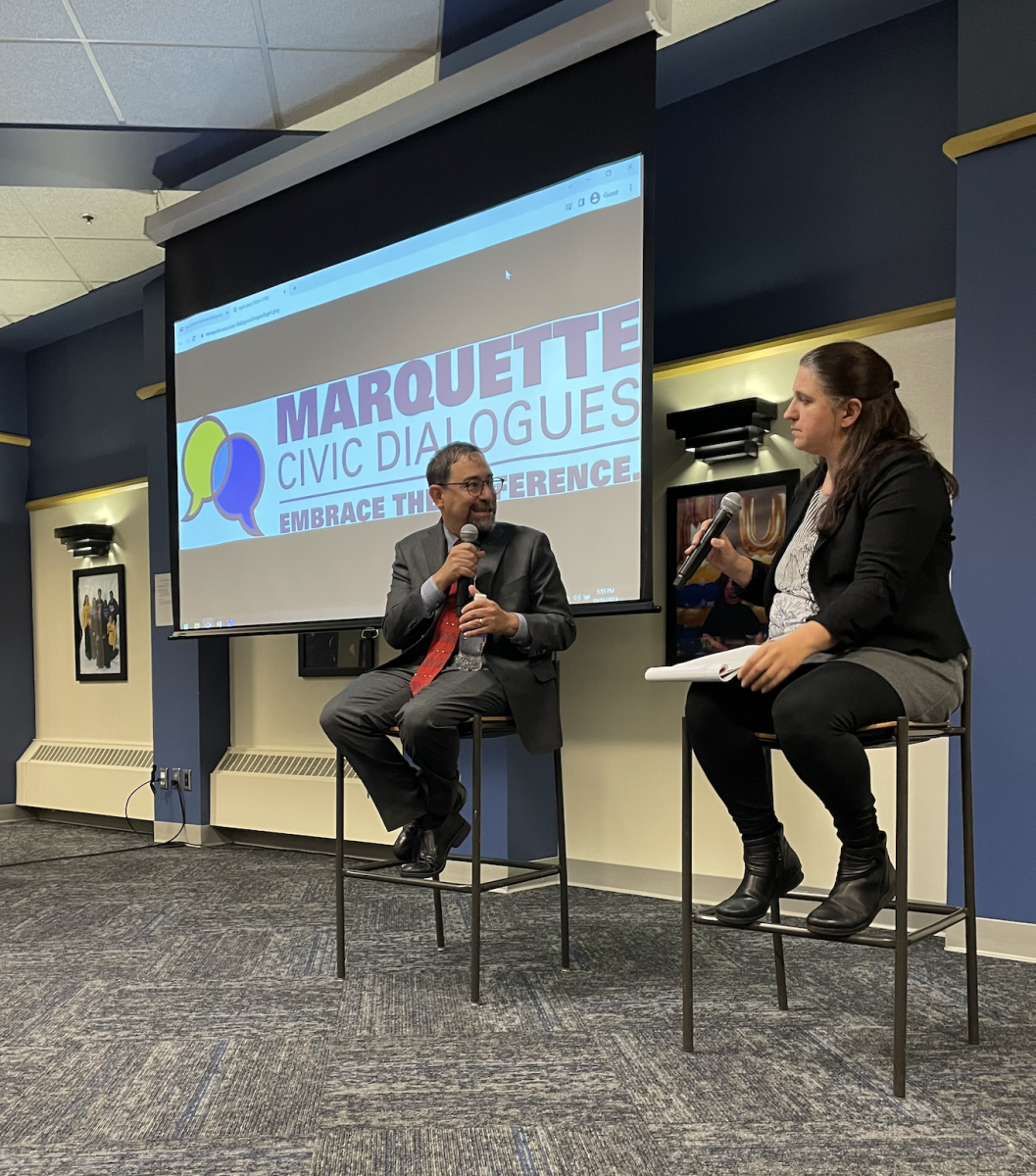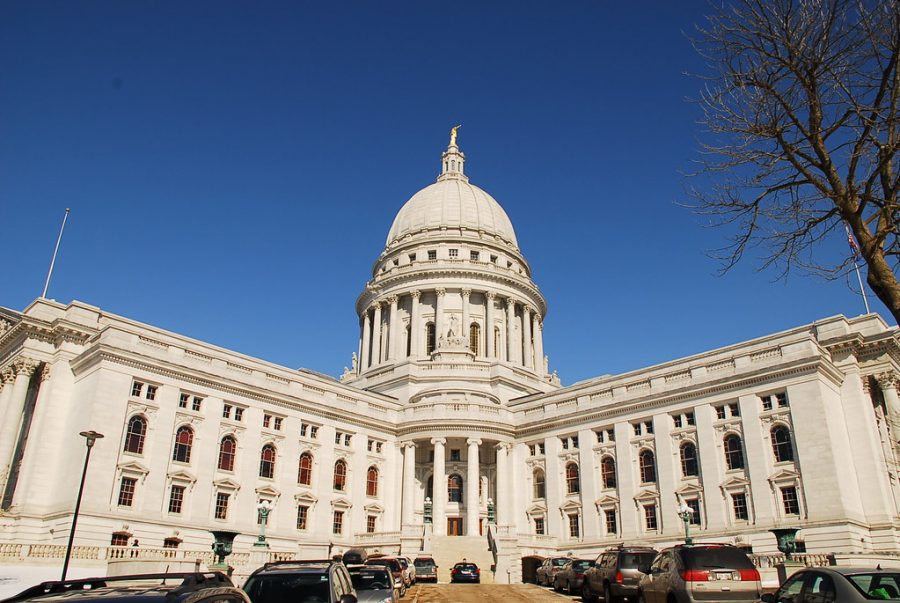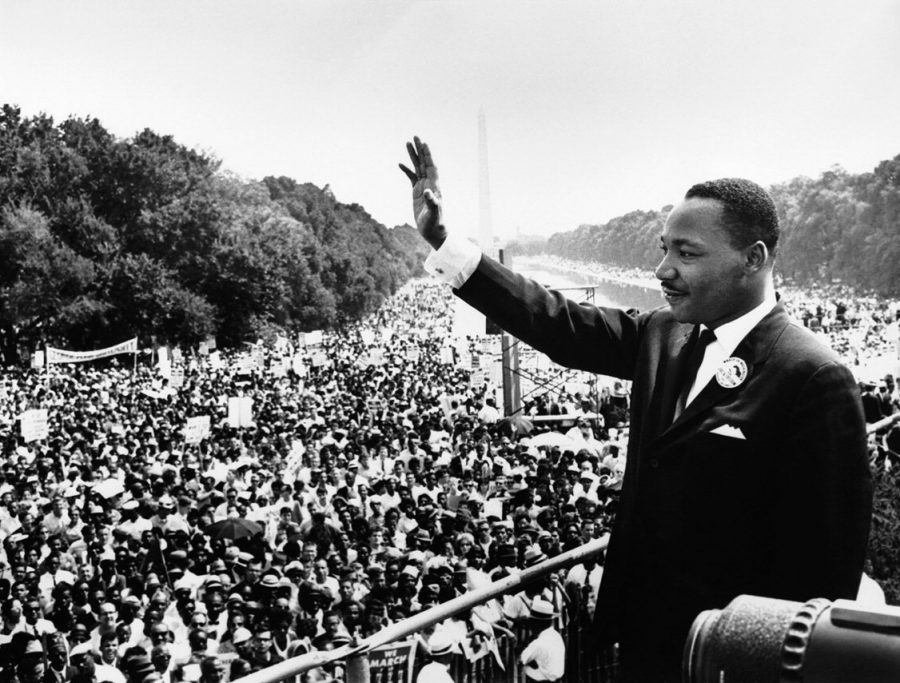Either through selective memory or deliberate ignorance by conservatives, the disastrous presidency of Ronald Reagan has become a “golden era” of American politics. College students who were not even conceived during the Reagan years proudly walk around campus wearing “Reagan/Bush” campaign T-shirts.
Conservative Twitter pundits yearn for the days when a former actor-turned-political figure was the face of American conservatism. This hero worship is baffling, as the Reagan administration set forth historically bad policies both at home and abroad.
Much like our current Commander-In-Chief, Reagan received glowing endorsements from hate groups like the Ku Klux Klan. An editorial written by a member of the Klan praised the Republican platform under Reagan, stating it “reads as if it was written by a Klansman.” Even after four years in office, the Klan endorsed him a second time during his re-election campaign. However, this second endorsement was spurned by the former governor of California. The former president spoke strongly against the hate group, yet many of his administration’s policies continue to adversely affect people of color to this day.
One of those ill-fated policies was the war on drugs. Despite similar drug usage rates, black populations were targeted more than whites due to racial connotations surrounding the crack epidemic. These policies still affect black communities with no clear positives. The United States, then the largest consumer of illegal drugs in the world, sought to punish any country who was not operating within strict anti-narcotics guidelines. Exceptions to these sanctions were made, as the CIA was funding some of those foreign cartels to help combat the “spread” of communism.
One minority group of the United States was damaged more by the Reagan administration than any other: the gay community. The 1980s saw the rise of HIV/AIDS in the United States. Little was known about the disease, which allowed misconceptions and misinformation surrounding the disease to spread. Reagan first used the word “AIDS” in public in 1985, five years into his time in office. The influence of the religious right was apparent in Reagan’s inaction, as the disease was predominantly affecting gay men. The Reagan administration deliberately dragged their feet on the issue of HIV/AIDS even as the disease was ravaging gay communities with horrific mortality rates.
Foreign policy under Reagan was somehow more devastating than his domestic policy, although not by a very wide margin. From funding death squads and extremist right-wing groups in Nicaragua, El Salvador and Grenada among others, the United States accelerated its rate of government de-stabilization in South America. Also among Reagan’s all-star lineup of foreign allies were the Mujahideen of Afghanistan, “freedom fighters” who would shortly become the Taliban.
Reagan did speak out strongly against one political figure during his time in office: Nelson Mandela. Due to Mandela’s links to the South African Communist Party, Reagan placed the anti-apartheid activist on the international terrorist list, where he would remain until 2008. The former president would also attempt to veto American sanctions on the Apartheid government of South Africa. The Senate, however, would override this decision, marking a shift in public opinion on apartheid.
Economically, Reagan is praised by conservatives for his tax cuts on the rich and his reduction in government spending. During the Reagan years, minimum wages were frozen while taxes on the rich were literally halved. As these tax cuts continued, the middle class saw increases in taxation. As a result of his economic policies, the wage gaps in this country have grown even larger. This tactic of economic stratification has continued to be an essential part of GOP platforms in the decades following the Reagan years.
The Reagan era had positives that would be unfair to overlook. The former president was well-spoken and had a comfortable media presence for a majority of his time in office. This is likely a result of Reagan’s time as an actor. This trait is displayed in his response to the Challenger disaster. Reagan’s granting of amnesty to illegal immigrants who entered the country prior to 1982 is an immigration stance that would be unheard of in modern conservatism. But the lengthy list of negatives associated with the Reagan administration heavily outweigh the positives.
The hero worship of Reagan exhibited by contemporary conservatives is either indicative of the malice of the party, or the ignorance of the damage Reagan has done to the world.








Daniel M. Key • Feb 6, 2019 at 1:16 pm
AMERICAN CALIPHATE: THE LEGACY OF FAILURE 2008-2016
1. “A Trump victory is an insult to my Legacy.”
2. Lowest Labor Participation rate since 1970’s.
3. 95 million out of labor force.
4. 11 million more Americans on food stamps.
5. Lowest home ownership in 50 years.
6. Worst economic recovery rate since WWII.
7. The “Knock-out” game.
8. Obamacare.
9. 1 in 5 families without a member in the labor force.
10. “We are no longer a Christian Nation.”
11. “Adding to the national debt, that’s irresponsible. It’s unpatriotic.”
12. $20 Trillion dollars in debt – $9.3 Trillion in 8 years.
13. 1 in 6 adult men aged 18-34 –in prison or out of labor force.
14. Apology Tour.
15. Louis Farrakhan
16. America ranked 17th out of 40 countries in educational performance.
17. “I’m pledging to cut the deficit in half by the end of my first term in office.”
18. More debt accumulated in 8 years than under all other presidents combined.
19. 43 million Americans living on welfare.
20. $873 billion dollars in regulations against businesses.
21. The Diversity Visa Lottery.
22. “If you’ve got a business, you didn’t build that. Somebody else made that happen.”
23. The Deep State.
24. James Rosen.
25. 300,000 manufacturing jobs lost.
26. Resurgence and expansion of Soviet/Russian Empire.
27. Putin annexes Crimea
28. Putin invades Ukraine.
29. Marlboro Reds
30. $732 billion global trade deficit in 2016.
31. Obamacare sends health insurance premiums up as much as 116%
32. Increased healthcare costs 43%, or approximately $5462 per family per year.
33. “You can keep your doctor.”
34. “You can keep your health insurance.”
35. “The ACA will reduce family healthcare premiums by $2500 per year.”
36. Unaffordable healthcare deductibles.
37. Highest Budget Deficit since WWII – 10% of GDP.
38. Decreased availability of healthcare providers.
39. Decreased healthcare choices.
40. It’s Bush’s fault.
41. It’s racism.
42. “This is the most transparent administration in history.”
43. AG Holder in contempt.
44. AG Lynch takes the 5th.
45. IRS Director Lerner in contempt.
46. Communist CIA Director Brennan
47. $200,000 to the Islamic Relief Agency,
48. $1.5 Billion to the Muslim Brotherhood.
49. 4 dead including an Ambassador in Benghazi and a political cover-up.
50. Left-wing political activist federal judges.
51. Clive Bundy.
52. LaVoy Finicum.
53. Honoring the deaths of Fidel Castro and inner-city criminals
54. Refusing to honor the deaths of police officers and soldiers.
55. Encouraged illegals to vote.
56. $1 Billion in taxpayer money to failed Green Climate Fund.
57. Politically manufactured racial unrest.
58. Politically orchestrated civil disobedience.
59. Crimigrants.
60. Red lines in the sand.
61. Open Internet Order (Net Neutrality)
62. Clock Boy.
63. Highest Federal Debt since WWII – 67% of GDP.
64. Cap and Trade.
65. War on Coal.
66. Chief Advisor Jarrett.
67. “Tell Vladimir I’ll have more flexibility after the election.”
68. DNS spying on the press.
69. IRS investigations of political opponents.
70. Doubled debt per US citizen from $31,000 to $61,340.
71. The rise of ISIS and Muslim extremism.
72. An unarmed invasion across an unsecured US border.
73. Suppression of speech and thought.
74. A weakened military.
75. “Bowe Bergdahl served America with honor and distinction.”
76. First President without a 3% GDP in any year of office.
77. Media left-wing propaganda.
78. Cash For Clunkers (Signature Economic Achievement).
79. ACORN.
80. Fast & Furious.
81. Reverend Wright.
82. Black Lives Matter.
83. Dead Cops.
84. Edward Snowden.
85. Lowest US Credit Rating in history
86. Betrayal of Israel.
87. “The future must not belong to those who slander the prophet of Islam.”
88. “I will stand with the Muslims should the political winds shift in an ugly direction.”
89. Mueller and Comey.
90. Highest Long-term unemployment since Great Depression – 45.9%.
91. Endorsement of social division and unrest.
92. Burned and looted cities.
93. Obliterated Democrat Party – 900+ state legislature seats, 12 governors, 69 House seats, 13 Senate seats lost.
94. Abolished separation of powers.
95. Project Cassandra.
96. Nukes to Iran.
97. Moolah for Mullahs: Secret delivery of $150 billion to Iran.
98. Fixed elections.
99. 16,000 new IRS agents to fleece middle class.
100. International loss of respect.
101. “I”
102. Feckless foreign policy.
103. Secretary of State Clinton.
104. CIA spying on the US Senate
105. Pay for Play.
106. 10.5% true unemployment.
107. The Dream Act.
108. Veto of 911 Crime Bill.
109. Over 150 Muslim terrorists released from Gitmo; 30% return to ISIS.
110. Inedible school lunches.
111. $114 million in taxpayer funded vacations.
112. “The 1980s are now calling to ask for their foreign policy back because the Cold War’s been over for 20 years.”
113. Political purge of Generals and Admirals.
114. Criminal immunity for Clinton Aides.
115. $700 billion in taxpayer money funneled into government pension funds to pay back political supporters.
116. Record Gun Sales.
117. College indoctrination instead of education
118. Most Presidential commutations and pardons ever.
119. Boys in Girl’s restrooms.
120. Highest Federal Spending since WWII – 25% of GDP.
121. DOJ/FBI political corruption.
122. Fake News.
123. “It’s very rare that I come to an event where I’m like the fifth-or sixth-most interesting person.”
124. Wiener laptops.
125. Abedin and the Journal of Muslim Minority Affairs.
126. Green Energy Initiative collapse costing taxpayers $2 billion.
127. Bill Ayers.
128. Solyndra bankruptcy and cover up.
129. Shovel Ready Jobs.
130. 45 Communist/Socialist/Progressive White House Czars.
131. “White folks are what’s wrong with America.”
132. Inability to account for $6 Billion in DOS contracts.
133. Common Core.
134. The Secret Amnesty Act.
135. Project Veritas.
136. Warmbier.
137. The View.
138. Foreign hacking of US intelligence communications.
139. Unsecured classified e-mails.
140. Participation Trophies.
141. Presidential Celebrity Participation Medals.
142. Stonewalling Congressional investigations.
143. I’ll have more latitude after the election.”
144. Rachel “Orange is the New Black” Dolezal.
145. Elizabeth “Pocahantas” Warren.
146. Destruction of Middle Class.
147. Imam Mohamed Magid at White House.
148. Brexit.
149. Oscar López Rivera.
150. “The JV team.”
151. Fake Birth Certificates.
152. “Chelsey” Manning.
153. “Throughout history, Islam has demonstrated through words and deeds the possibilities of religious tolerance and racial equality.”
154. Paid rioters.
155. VA Care crisis.
156. Seth Rich.
157. Paris Climate Agreement.
158. “Islam is part of the fabric that built America.”
159. Paying Park Rangers to close National Monuments that cost nothing to stay open.
160. Brian Terry.
161. Libya.
162. Drone surveillance without due Process.
163. Cancelled National Day of Prayer.
164. Sharia Law in America.
165. Fixed Debates.
166. Held in contempt for obstructing oil drilling in the Gulf of Mexico.
167. Mao ornaments on the White House Christmas Tree.
168. Illegal recess appointments.
169. Operation Choke Point.
170. Snowflakes.
171. $102,000 Dog Walker.
172. “There has never been a man or a woman—not me, not Bill, nobody—more qualified than Hillary Clinton to serve as president of the United States of America.”
173. CFPB.
174. Millions in taxpayer funds to Sanctuary Cities.
175. Presidential salary raise.
176. Abrogated bankruptcy law to turn over control of companies to union supporters.
177. “I am not in favor of concealed weapons. I think that creates a potential atmosphere where more innocent people could get shot during altercations.”
178. Mass Murders in Gun-Free Zones.
179. Safe Spaces.
180. DACA.
181. Christopher Steele.
182. “Those jobs of the past are just not going to come back, what magic wand do you have?”
183. Kate Steinle.
184. Wikileaks.
185. Sotomayor and Kagan.
186. 3940 murdered in Chicago.
187. Oval Office Quran Quotes.
188. 10.8 percent increase in murders (2014 to 2015) — most in 1 year since 1971.
189. Refusal to enforce immigration laws.
190. Government shutdown.
191. “I have a pen and a phone.”
192. Political Correctness.
193. Professor Henry Louis Gates.
194. $221 million to Palestine.
195. “I think when you spread the wealth around, it’s good for everybody.”
196. Lowest Presidential success rate before the Supreme Court since Truman.
197. Rainbow Whitehouse.
198. Uranium One.
199. “Over the last 15 months, we’ve traveled to every corner of the United States. I’ve now been in 57 states.”
200. Bowing to Saudi Kings.
201. Susan Rice and unmasking.
202. Trump Tower wiretaps.
203. NDAA vacates Habeas Corpus.
204. “I can make a firm pledge. Under my plan, no family making less than $250,000 a year will see any form of tax increase. Not your income tax, not your payroll tax, not your capital gains taxes, not any of your taxes.”
205. “The first time I heard about it was on the news.”
206. Armed ISIS and Al Qaeda in Syria.
207. Postponed Obamacare “tax” penalties until after election.
208. “If I had a son…”
209. Sgt. Andrew Tahmooressi
210. Gratuitous Nobel Peace Prize.
211. “Bitter Clingers to Guns and Religion.”
212. Negotiating with terrorists.
213. Not negotiating with Republicans.
214. Failed Netanyahu coup.
215. Flint Water.
216. Russian campaign meddling.
217. Muslims in the White House.
218. Islamic violence is “workplace” violence.
219. Pelosi and Schumer.
220. The NFL takes a knee.
221. Trump Dossier.
222. Ground Zero “Victory” Mosque.
223. Sealed College Records
224. Marine umbrella holder
225. Timothy Geithner
226. Millions of tax dollars to build Mosques overseas.
227. Khazir Khan.
228. ANTIFA.
229. Wilson and Waters.
230. “I’m not on the ballot, but my policies are.”
231. Alias E-mails on HRC’s server.
232. Blocked Keystone XL and Dakota Pipelines, banned drilling.
233. “Even if we drilled every square inch of this country right now, we’re still going to be relying on other countries for oil.”
234. “It’s like — it was like Special Olympics, or something.”
235. 8 years of failure.
236. 8 years of corruption.
237. 8 years of incompetence.
238. 8 years of absurdity.
239. 8 years of lies.
240. 8 years of stagnation.
241. 8 years of unaccountability.
242. 8 years of war.
243. 8 years of advancing radical left-wing politics.
244. 8 years of disgrace.
245. A Republican Congress.
246. Vacated Executive Orders.
247. 2 terms for President Donald J. Trump
Bill Fieweger • Feb 22, 2018 at 4:36 pm
Were you even around during the Reagan years?